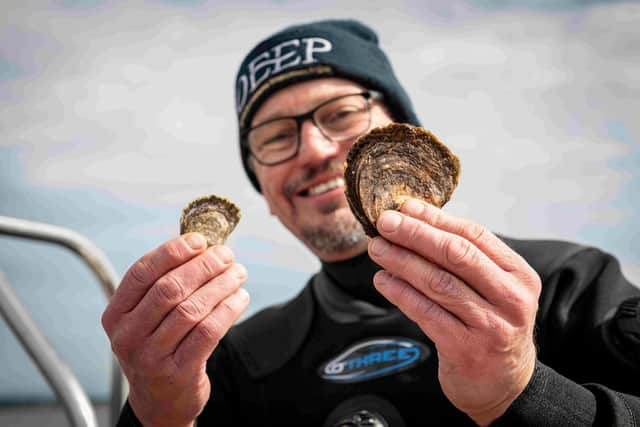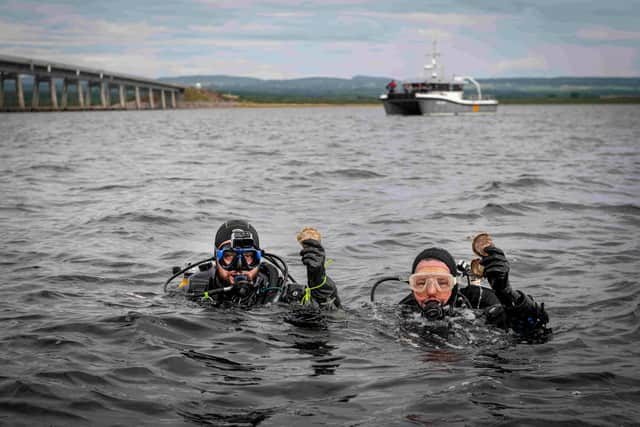Dram, bam, thank you clam: How Scotland's wild oysters are sooking up whisky dregs and saving the planet
More than 20,000 of the molluscs have now been relocated to the Dornoch Firth as part of the Dornoch Environmental Enhancement Project (DEEP), which aims to create a sustainable reef of four million oysters in the area.
The project, which began in 2014, is being carried out by Tain-based Glenmorangie Distillery and a team of scientists from Heriot-Watt University, with support from the Marine Conservation Society.
Advertisement
Hide AdAdvertisement
Hide AdNative oysters were wiped out in the firth around 100 years ago as a result of over-fishing, but the new population is thriving.


As well as helping to restore the local marine habitat, they are purifying the water by dining on organic material left over from the whisky-making process.
But that’s not all – the shellfish are also playing a part in the battle to curb climate change.
As part of the DEEP project, the team is investigating findings that suggest the restored reef has the capacity to act as a long-term store of carbon, which is locked away in calcium carbonate in the shells of native oysters.


The researchers are evaluating the reef’s potential storage capacity.
Professor Bill Sanderson, from Heriot-Watt University said: “DEEP has allowed us to demonstrate the many benefits of restoration of long-lost reefs, and carbon storage is yet another exciting outcome of the research for the project.
“We are still uncovering exactly how much of a game-changer this can be, but we’re increasingly focusing our research on delving deeper into the role of the oyster reef as a carbon store.
“It’s great to think that the Dornoch Firth can contribute as a global exemplar for helping to mitigate climate change, especially as we run up to COP26 being held here in Scotland. ”
Advertisement
Hide AdAdvertisement
Hide AdThomas Moradpour, chief executive and president at the Glenmorangie Company, said: “DEEP continues to deliver leading research into vital areas that affect us all as we continue on the journey to a net-zero world.
“Today’s businesses must all play their part, not just to protect the environment in which they operate, but to enhance it, leaving it in better shape for the next generation.”
Glenmorangie commissioned an anaerobic digestion plant in 2017 to reduce the distillery’s impact on water quality in the Dornoch Firth.
This has seen a 95 per cent reduction in the biological load going into the sea.
The new reef, with each oyster able to filter up to 200 litres of water every day, is expected to soak up any leftovers, while also creating a haven for other marine life.
A message from the Editor:
Thank you for reading this article. We’re more reliant on your support than ever as the shift in consumer habits brought about by coronavirus impacts our advertisers.
If you haven’t already, please consider supporting our trusted, fact-checked journalism by taking out a digital subscription.
Comments
Want to join the conversation? Please or to comment on this article.
